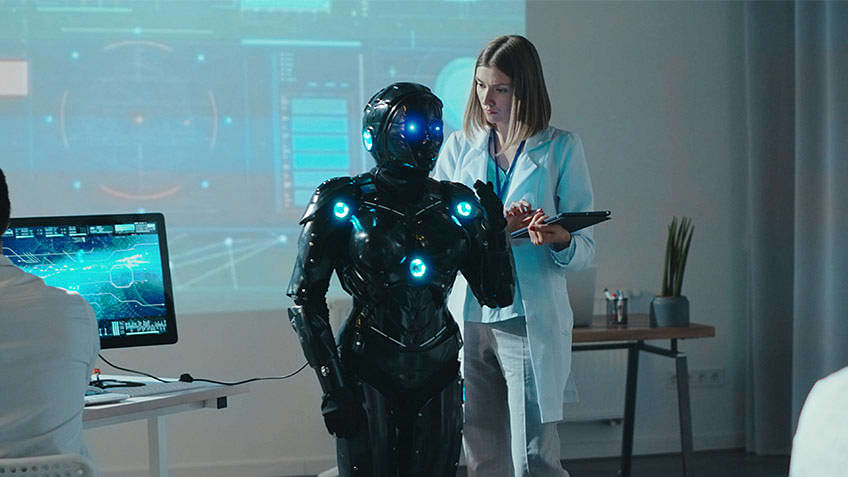Artificial Intelligence: From Sci-Fi to Reality
Artificial intelligence (AI) has gone from the stuff of science fiction to a rapidly evolving field with real-world applications that touch nearly every aspect of our lives. From the moment you wake up to a smart alarm clock to the personalized recommendations you see online, AI is working behind the scenes.
But what exactly is AI? In simple terms, it’s the ability of machines to learn and perform tasks that typically require human intelligence. This can include things like:
- Pattern recognition: Identifying patterns in data that humans might miss, like spotting anomalies in financial transactions or medical images.
- Decision making: Using algorithms to make choices based on complex criteria, such as routing traffic in real-time or selecting the best stocks to invest in.
- Natural language processing: Understanding and responding to human language, which powers chatbots, virtual assistants, and machine translation.
AI is powered by a variety of techniques, including:
- Machine learning: Algorithms that learn from data without being explicitly programmed.
- Deep learning: A type of machine learning inspired by the structure and function of the brain.
- Computer vision: Enabling computers to see and understand the world around them through images and videos.
The Impact of AI
AI is already having a major impact on our world, in fields like:
- Healthcare: AI-powered tools are being used to diagnose diseases, develop new drugs, and personalize treatment plans.
- Transportation: Self-driving cars and drones are becoming a reality, with the potential to revolutionize transportation.
- Manufacturing: AI is helping to optimize production processes and improve quality control.
- Finance: AI is used to detect fraud, make investment decisions, and personalize financial products.
The Future of AI
The future of AI is full of possibilities, with some experts predicting that it could eventually surpass human intelligence. However, there are also concerns about the potential negative impacts of AI, such as job displacement and the misuse of AI for malicious purposes.
It’s important to remember that AI is a tool, and like any tool, it can be used for good or evil. It’s up to us to ensure that AI is developed and used ethically and responsibly, so that it can benefit all of humanity.

 Before Diving Into Smart Home Automation, Define Your Goals
Before Diving Into Smart Home Automation, Define Your Goals  How User-Friendly Website Design is Transforming the Online Retail Sector
How User-Friendly Website Design is Transforming the Online Retail Sector  SCCM Deployment Types
SCCM Deployment Types  Robotics: From Sci-Fi to Reality
Robotics: From Sci-Fi to Reality